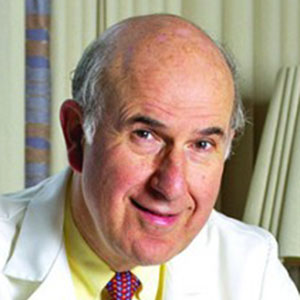Session Abstract – PMWC 2017 Silicon Valley
Session Synopsis: This session explores the power of combining personalized genetic, clinical lab, and environmental/lifestyle data with tailored behavioral coaching to optimize wellness. Leveraging dense, dynamic, personal data clouds enables multi-omic, longitudinal analyses that can inspire novel approaches to biomarker discovery, insights into biological mechanisms of health, and the identification of “actionable possibilities” for relevant lifestyle interventions.

LEE HOOD
M.D., PH.D., PRESIDENT, INSTITUTE FOR SYSTEMS BIOLOGY
Dr. Hood’s research has focused on fundamental biology (immunity, evolution, genomics) and on bringing engineering to biology through the development of five instruments; the DNA and protein sequencers and synthesizers and the ink-jet oligonucleotide synthesizer (making DNA arrays) for deciphering the various types of biological information (DNA, RNA, proteins and systems). These instruments constitute the technological foundation for modern molecular biology and genomics. He has applied these technologies to diverse fields including immunology, neurobiology, cancer biology, molecular evolution and systems medicine. Dr. Hood is a member of the National Academy of Sciences, the American Philosophical Society, the American Association of Arts and Sciences, the Institute of Medicine and the National Academy of Engineering. Dr. Hood is one of only 7 (of more than 6000 members) scientists elected to all three academies (NAS, NAE and IOM). Dr. Hood has also played a role in founding more than 14 biotechnology companies, including Amgen, Applied Biosystems, Systemix, Darwin and Rosetta. He is currently pioneering systems medicine and the systems approach to disease and has recently cofounded the company Integrated Diagnostics—that hopefully will become a platform company for P4 medicine.
Speaker Profile
M.D., Ph.D., Director Center for Computational Medicine & Bioinformatics, University of Michigan
Biography
Dr. Omenn’s research focuses on cancer proteomics and informatics. He leads the Proteomics Alliance for Cancer Research, the HUPO Plasma Proteome Project, the Driving Biological Problems Core of the National Center for Integrative Biomedical Informatics, and the Center for Computational Medicine and Bioinformatics. There are datasets for application of analytical tools, and there are research teams eager to engage in collaborative studies in each of these initiatives. He has long-standing interests in mechanisms of genetic predispositions to risks from environmental and occupational exposures, pharmacogenetics and pharmacogenomics, and science-based risk analyses. Gilbert Omenn is Professor of Internal Medicine, Human Genetics, and Public Health at the University of Michigan. He served as Executive Vice President for Medical Affairs and as Chief Executive Officer of the University of Michigan Health System from 1997-2002. He is PI of the Michigan Life Sciences Corridor Proteomics Alliance for Cancer research program and leader of the international Human Proteome Organization (HUPO).




